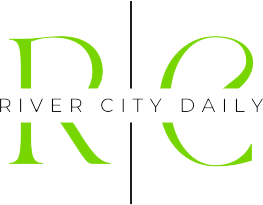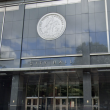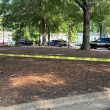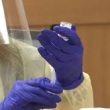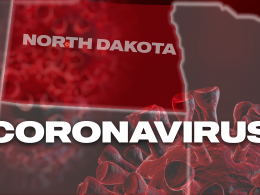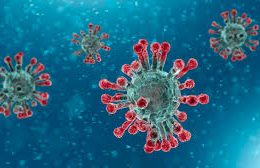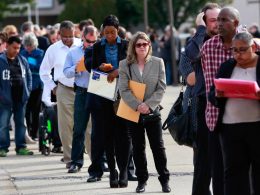The rapid expansion of COVID-19 vaccinations to senior citizens across the U.S. has led to bottlenecks, system crashes and hard feelings in many states because of overwhelming demand for the shots.
Mississippi’s Health Department stopped taking new appointments the same day it began accepting them because of a “monumental surge” in requests. People had to wait hours to book vaccinations through a state website or a toll-free number Tuesday and Wednesday, and many were booted off the site because of technical problems and had to start over.
In California, counties begged for more coronavirus vaccines to reach millions of their senior citizens. Hospitals in South Carolina ran out of appointment slots within hours. Phone lines were jammed in Georgia.
“It’s chaos,” said New York City resident Joan Jeffri, 76, who had to deal with broken hospital web links and unanswered phone calls before her daughter helped her secure an appointment. “If they want to vaccinate 80% of the population, good luck, if this is the system. We’ll be here in five years.”
On Thursday, New Jersey expanded vaccinations to people between 16 and 65 with certain medical conditions — including up to 2 million smokers, who are more prone to health complications.
The U.S., meanwhile, recorded 3,848 deaths on Wednesday, down from an all-time high of 4,327 the day before, according to Johns Hopkins University. The nation’s overall death toll from COVID-19 has topped 385,000.
President-elect Joe Biden unveiled a $1.9 trillion coronavirus plan Thursday that includes speeding up vaccinations. Called the “American Rescue Plan,” the legislative proposal would meet Biden’s goal of administering 100 million vaccines by the 100th day of his administration.
Hard-hit Los Angeles County, the nation’s most populous county with 10 million residents, said it couldn’t immediately provide shots to the elderly because it had inoculated only about a quarter of its 800,000 health care workers.
“We’re not done with our health care workers, and we actually don’t have enough vaccine right now to be able to get done more quickly,” Public Health Director Barbara Ferrer said. “We haven’t heard back from the state about vaccine availability and how it would be distributed.”
“It’s almost like a beauty contest. And this should not be a beauty contest,” County Supervisor Cindy Chavez said. “This is about life and death.”
In Mississippi, officials said new appointments will probably have to wait until a hoped-for shipment of vaccines in mid-February.
In South Carolina, Kershaw Health in Camden implored people not to call its hospitals or doctors to schedule vaccine appointments after receiving more than 1,000 requests in two days. State health authorities said their hot line got 5,000 calls on Wednesday.
“My mom can’t drive to Charleston,” Clark said. “She’s too old.”
Allison Salerno, an audio producer from Athens, Georgia, said she spent the better part of a day calling her state’s health department to get a vaccine appointment for her 89-year-old mother.
“I started calling at 8:30 a.m. and on the 67th call I was finally put on hold,” Salerno said. “I had already pre-registered her two weeks before online, but I never received a confirmation.”
“My mother has not been out since the beginning of the pandemic,” Salerno said. “She’s a very healthy woman and she wants to go to the grocery store, she wants to get her hair done.”
Arizona, which had the nation’s highest COVID-19 diagnosis rate over the past week, will start signing up people 65 and older next week. It also plans to open a vaccination site at Phoenix Municipal Stadium in addition to the one dispensing thousands of shots daily at the home of the NFL’s Arizona Cardinals.
To step up the pace of vaccinations, South Carolina made a rule change allowing medical students, retired nurses and other certain professionals to administer the shots.
California lawmakers are increasing the pressure on Gov. Gavin Newsom to likewise expand authorization for who can give injections to include nursing students, retired medical workers, firefighters and National Guard members with medical training.
Jeffri, the New Yorker, spent several days trying to book a vaccination and once actually received a slot, only to get a follow-up text saying they didn’t have the doses. Finally, with some online sleuthing from her daughter, the retired arts-administration professor got an appointment for her first shot — two weeks from now.
“It’s a relief,” said Jeffri, who wrote to Gov. Andrew Cuomo about her ordeal. “But I’m not sure I trust it until it’s done.”Allison Salerno, an audio producer from Athens, Georgia, said she spent the better part of a day calling her state’s health department to get a vaccine appointment for her 89-year-old mother, who lives with her and her husband.
“I started calling at 8:30 a.m. and on the 67th call I was finally put on hold,” Salerno said. “I had already pre-registered her two weeks before online, but I never received a confirmation.”
“My mother has not been out since the beginning of the pandemic,” Salerno said. “She’s a very healthy woman and she wants to go to the grocery store, she wants to get her hair done.”
Meanwhile, some states, like Minnesota, are waiting before throwing open the doors.
“As we learn more, we will work to make sure everyone who is eligible for a vaccine knows how, where, and when they can get their shots,” the state Health Department said in an email Wednesday. “Everyone’s opportunity to get vaccinated will come; it will just take some time.”
To step up the pace of vaccinations, South Carolina made a rule change allowing medical students, retired nurses and other certain professionals to administer the shots.
California lawmakers are increasing the pressure on Gov. Gavin Newsom to likewise expand authorization for who can administer doses to include nursing students, retired medical workers, firefighters and National Guard members with medical training.
Newsom said the state’s priority is to deliver vaccines “as quickly as possible to those who face the gravest consequences.” He urged patience for those not yet eligible, saying: “Your turn is coming.”
“It’s a relief,” said Jeffri, who wrote to Gov. Andrew Cuomo about her ordeal. “But I’m not sure I trust it until it’s done.”
